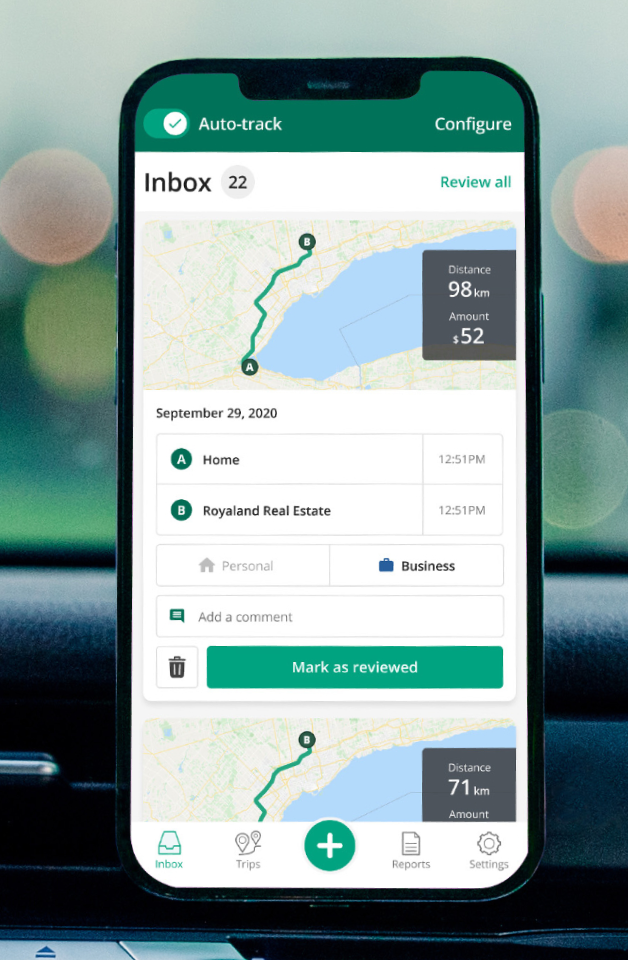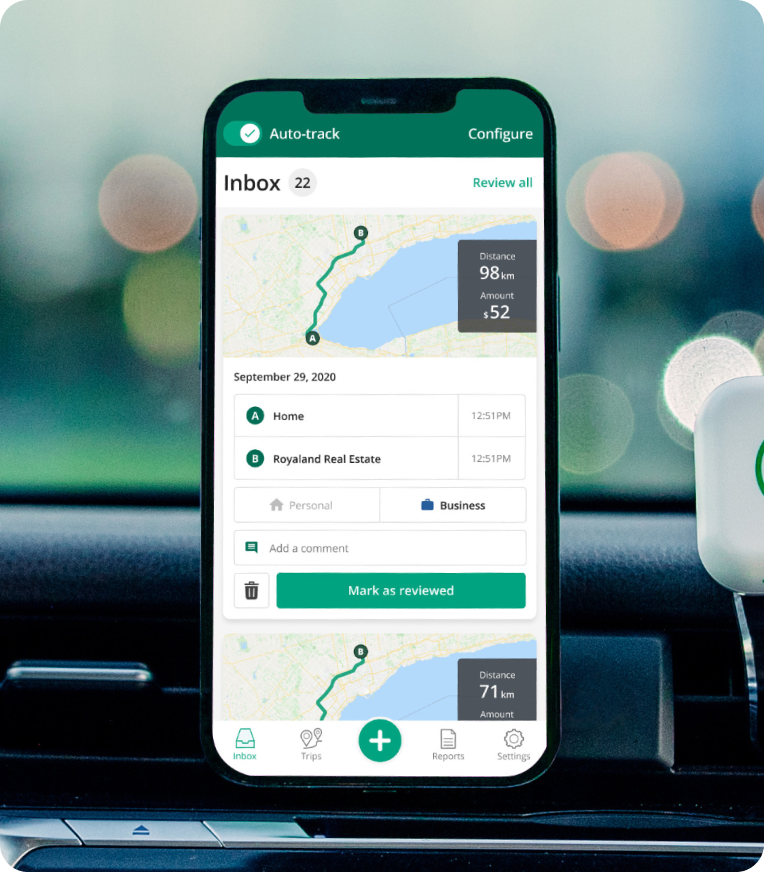
Depending on your situation, you might have to adhere to different IRS mileage log requirements, legal or otherwise, in order to keep compliant records.
Your employer might have specific requirements for mileage reporting, and the IRS also has rules that apply to business owners and self-employed.
In this article, we look at mileage logging from both the perspective of an employee and the self-employed.
Are you wondering if you did your mileage log properly? With Driversnote as your mileage tracker, your trips are automatically logged just the way the IRS likes it.
Regardless of the circumstances of your employment, you will likely be asked to record the following:
You can learn more about the IRS mileage log requirements (scroll to table 5.2 for an example) when it comes to logging business mileage.
It is also required that the mileage logs are timely. This means that you must log mileage at or near the time of the trip - anything that is updated weekly is considered good enough.
If you're self-employed or a business owner, you need to adhere to the IRS's definition of adequate records. Keep in mind that the rules cover all transportation-related expenses.


Paper, diary, account book, digital spreadsheets, CSV files, PDF files, Xlsx (Microsoft Excel) are all accepted by the IRS. In other words, the format does not matter as long as the right records are present (see "Adequate records" above).
The IRS provides a paper template for logging mileage, but manual trip logging is now largely considered an outdated way of keeping mileage records.
As an employed person, your employer should inform you which records they need and the mileage log formats that they can process.
It is a myth that the IRS requires you to record your odometer at the beginning and end of your trips.
There's currently nothing in the law that requires you to log odometer readings except for the beginning and the end of each year, and when you start using a new vehicle.
However, do keep in mind that your employer might ask you to record odometer readings more frequently.
There are no requirements for how you track your mileage, except that you have to record the mileage of each trip. That means either
The easiest way to satisfy the IRS mileage tracking requirements is to use a mileage tracking app. There's a range of apps that are designed to simplify tracking and recording your mileage in a compliant manner, such as Driversnote. Driversnote works for iOS and Android and for both self-employed and employed individuals.
If you drive your vehicle(s) for both business and personal purposes, you need to be able to prove the business portion of use. You work this out as a percentage of miles driven for both business and personal use. That means keeping a log of all trips and then calculating the share used for business.